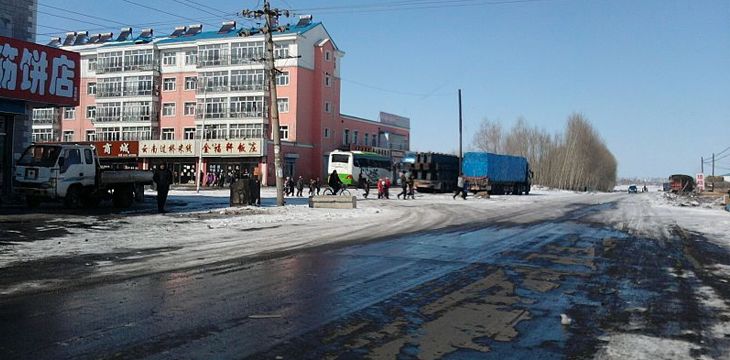
|
Getting your Trinity Audio player ready... |
Despite the central government’s reversal on blockchain technology, Chinese authorities continue to crack down on crypto mining companies in North China’s Inner Mongolia Autonomous Region, per reports by the Global Times.
According to a notice issued by the Department of Industry and Information Technology of Inner Mongolia Autonomous Region, the local government of Inner Mongolia intends to dispatch inspection units to assure the “clean-up and rectification of crypto token mining companies” in the provincial cities.
Inner Mongolia, in northern China, is among the most suitable areas to operate Bitcoin mining businesses thanks to its cheap electricity supply, low land prices, cold weather, and a small population. Such conditions help miners by reducing their highest cost e.g., electricity, cooling machines quickly, and avoiding densely populated areas that would be disturbed by noisy mining farms.
The primary targets in this wave of inspection are crypto mining operations whose businesses are deemed to be irrelevant to the “real economy.” Also, companies who enjoy preferential government policies, which include local electricity rates, land, and taxes, “by pretending to be a participant in the cloud computing host or big data industry.”
The inspections come at a time when local governments are ramping up efforts to regulate cryptocurrency mining.
The local government of Kangding in Southwest China’s Sichuan Province recently formed workgroups to inspect and regulate local Bitcoin miners in late May, according to media reports. While five departments within Inner Mongolia felt the need to reform the mining industry within the province, with the regulators’ position stated that “the virtual currency ‘mining’ industry belongs to the pseudo-financial innovation unrelated to the real economy, and should not be supported.”
Market speculation had risen lately as to whether the government will ease policy controls on the crypto token mining industry, especially after the National Development and Reform Commission removed Bitcoin mining from a list it drafted in April that listed industries it wanted to eliminate. It remains unclear how this round of new inspections will impact miners operating in Inner Mongolia.
Yang Wang, a senior research fellow with the Fintech Institute of Renmin University of China, told the Global Times: “Crypto token mining companies in China might change their focus to support blockchain research and applications.” It seems that many who worked in the local crypto mining industry have already moved on to other countries.

 11-22-2024
11-22-2024


